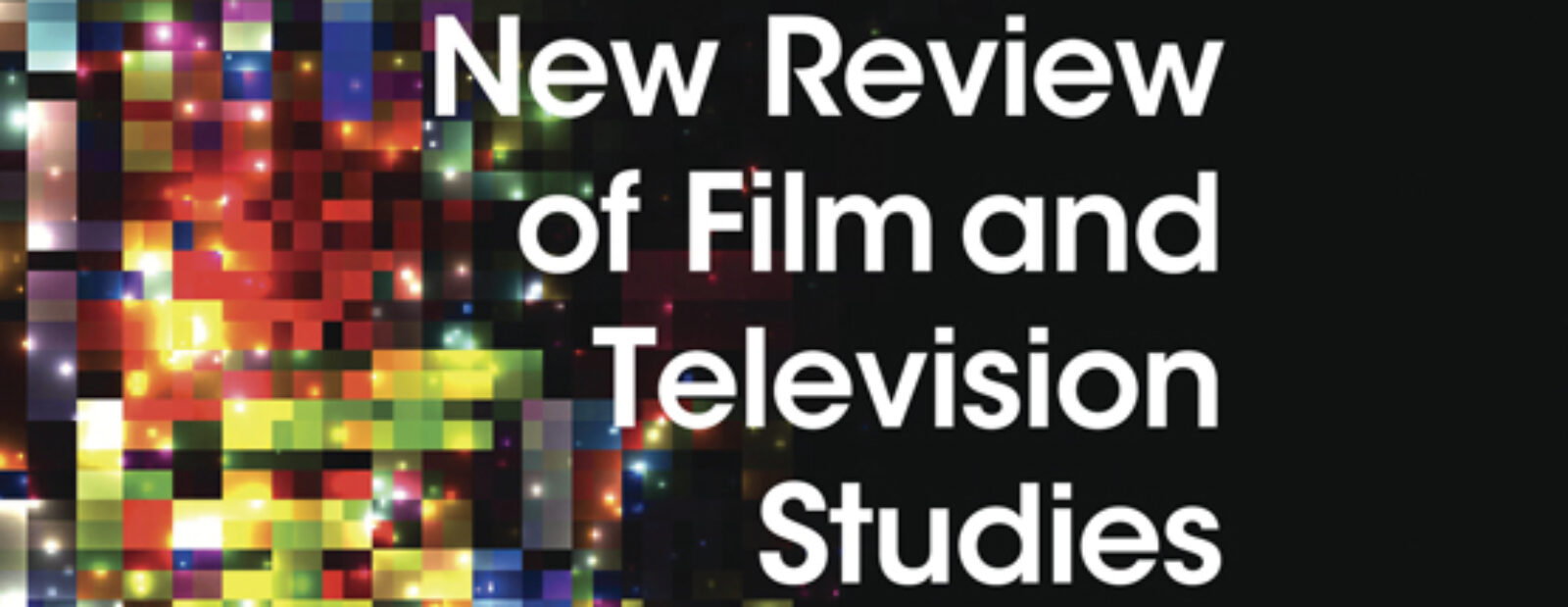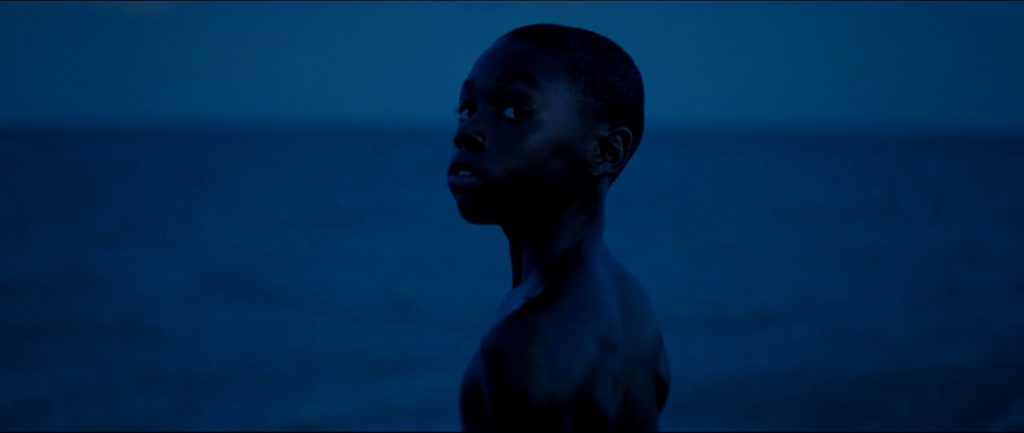
Introduction
Barry Jenkins’ Moonlight (2016) is clearly a film that we’ll still be talking about for years to come, so it’s no surprise that only five years after its release it earned a book-length scholarly treatment spotlighting its singular rendering of Black queer youth. The 2021 volume Moonlight: Screening Black Queer Youth, published as part of Routledge’s Cinema and Youth Cultures series, is the topic of discussion between the book’s author, Dr. Maria Flood, and LGBTQ media expert Dr. Victor Evans in the NRFTS podcast episode we’re pleased to present for your listening enjoyment. Their wide-ranging discussion touches on Moonlight’s position vis-à-vis “teen cinema” and coming of age stories, its release amidst a new wave of Black filmmaking in the U.S. and the American Presidential transition from Obama to Trump, its deft navigation of the demand that LGBTQ+ narratives tell stories that are both universal and specific, its challenging of Hollywood’s history of racial stereotyping and short-sighted neglect of Black creators and audiences, and its roundly acclaimed reception and resounding legacy.
As Flood’s subtitle announces, the inextricability of Blackness and queerness in Moonlight’s portrayal of its youthful protagonist cinematically conveys the experience of being what E. Patrick Johnson calls “quare” with texture and insight comparable to that of Marlon Riggs’ landmark autoethnographic works. The deeply affective experience of watching, and rewatching, Moonlight – a film that is frequently remarked upon as offering an “empathy test” to viewers – gains yet another layer of resonance in its revisiting during this discussion.
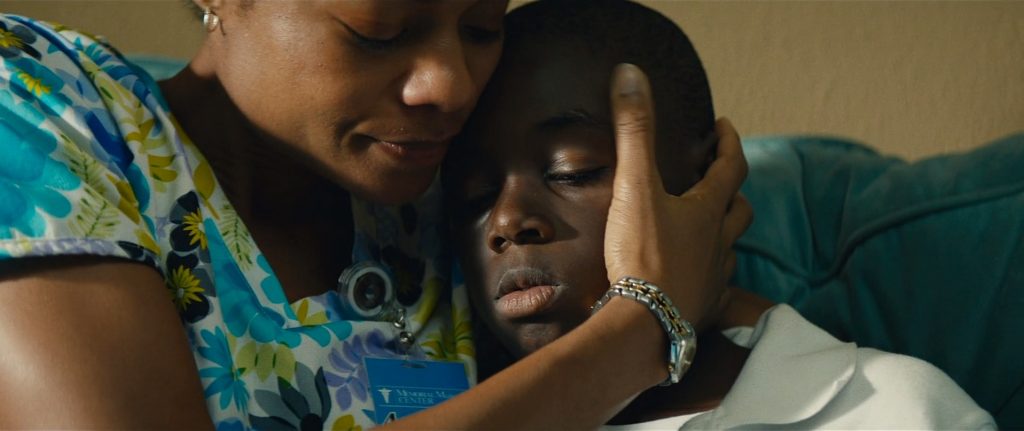
As you’ll hear, two additional comments that recur in the discourse around Moonlight reference its being long overdue and simultaneously of its moment. In the half-decade-plus since the film’s historic Best Picture Oscar win, Moonlight’s reverberations keep surging as U.S. society languishes amid the same ills pervading the film’s backdrop: Black Americans besieged by white supremacy and police brutality, an opiate epidemic as devastating as the crack epidemic to which Moonlight’s Paula (Naomie Harris) for a time succumbs, and fifty years after Stonewall a “Don’t Say Gay” bill in Florida, the state where Moonlight is set and where both Jenkins and playwright Tarell Alvin McCraney, whose story Jenkins adapted, grew up.
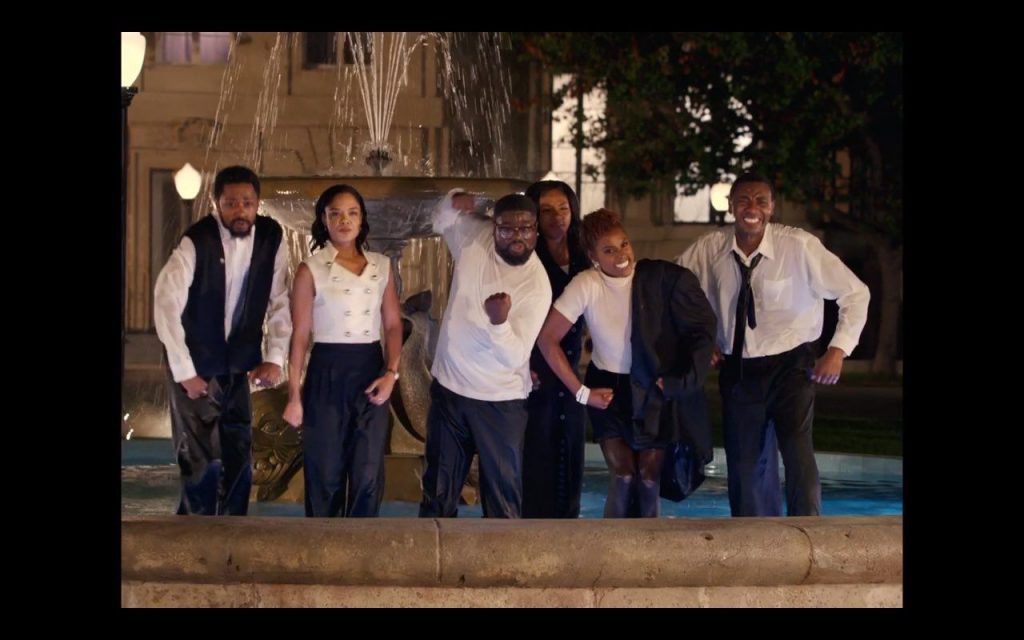
Having recently watched actor-comedian Jerrod Carmichael’s rivetingly confessional comedy special Rothaniel (2022), I reflected back on his performance in “Moonlight,” Jay-Z’s music video from 2017 that serves as the case study for critical race scholar Kristen Warner’s article, which I often teach, on what she terms “plastic representation.” Fresh from his decision to depart The Carmichael Show after a three-season run, Carmichael performs as himself filming an abysmally unfunny all-black-cast Friends reboot (the video duplicates dialogue from an actual episode of the anodyne, yet apparently ageless, series), before his escape from the soulless soundstage courtesy of Issa Rae (playing alt-Rachel). With the lyrics (with their “stuck in La La Land” refrain) building, the video cuts to footage of Moonlight’s cast and crew onstage at the Oscars.
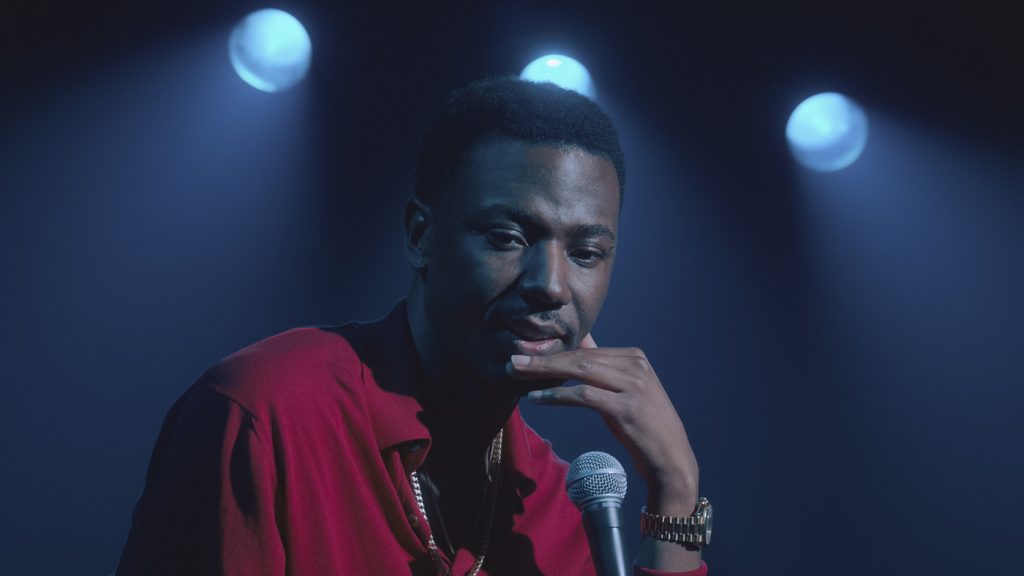
What had already proven a landmark work of politicized pop culture seems more profound still with the revelation that Carmichael was closeted at the time. As he relates to sobering effect in Rothaniel, being a Black queer youth in the American South meant acquiring a self-protective shell that became more indurated over time and with age. Such is the sense I have of Moonlight’s protagonist Chiron, who we see retreating ever further into himself across three phases of life, and of why these unguarded glimpses we’re granted through these uniquely intimate works are painfully, but necessarily, revealing.
Maria San Filippo, Editor
New Review of Film and Television Studies
